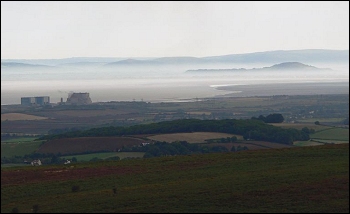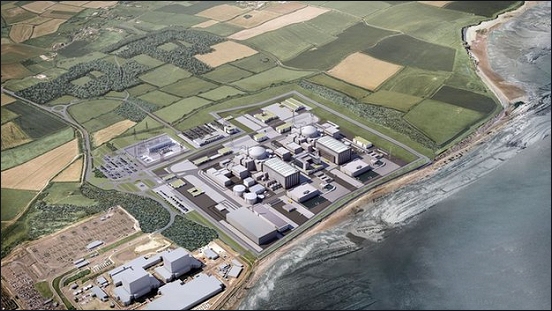The Hinkley Point C nuclear project near Burnham-On-Sea was given the go-ahead by EDF today (Thursday) when the energy firm announced its final investment decision to proceed with the £18bn project.
The decision came at a board meeting of French utility EDF – the company financing most of the £18bn project.
Following that agreement, legally binding contracts will be signed and construction work can begin, but critics warn of environmental damage and potential escalating costs. They are also concerned that the plant is being built by foreign governments. One third of the £18bn cost is being provided by Chinese investors.
 EDF intends to have more than 2,500 workers on site by next year. Announcing the approval of investment, EDF described the plant as “a unique asset for French and British industries”, saying it would benefit the nuclear sectors in both countries and would give a boost to employment.
EDF intends to have more than 2,500 workers on site by next year. Announcing the approval of investment, EDF described the plant as “a unique asset for French and British industries”, saying it would benefit the nuclear sectors in both countries and would give a boost to employment.
Ahead of the vote on whether to approve the Hinkley project, Gerard Magnin, an EDF board member, resigned, saying the project was “very risky” financially. Earlier this year, EDF’s finance director, Thomas Piquemal, also resigned amid reports he thought Hinkley could damage EDF itself.
Hinkley Point C is expected to provide 7% of the UK’s total electricity requirement.
The project has been hit in recent months by concerns about EDF’s financial capacity.
Despite the Chinese investment, Hinkley Point would remain an enormous undertaking for the stressed French company, which has had to raise money from its owners.
Earlier this week, EDF shareholders approved plans to issue new shares to raise 4bn euros (£3.4bn) to help pay for the project.
The French state, which owns 85% of EDF, will buy €3bn worth of new shares in the fundraising.
Doubts have dogged the plans for the £18 billion project and several delays to a final decision have raised further questions.
Hinkley Point C would be a crucial part of the UK’s future energy mix, providing 7% of the country’s total electricity needs when up and running in 2025. It is expected to create 25,000 jobs.







